All Stories
-
 Chemistry
ChemistryNew glue offers to turn any small walking robot into Spider-Man
To climb walls, robot feet need to alternately stick and let go. A novel adhesive can do that. Its stickiness is controlled by electric fields.
By Shi En Kim -
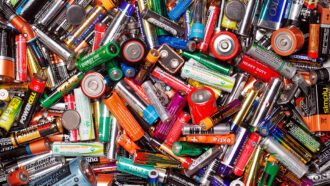 Chemistry
ChemistryExplainer: What is an electrode?
An electrode’s name depends on the circumstances. Confused? It may help to consider which electrochemical reaction is natural — and which is not.
-
 Chemistry
ChemistryExplainer: Ions and radicals in our world
When atoms get an electric charge, they act very differently. Now called ions, these are behind many aspects of chemistry, including acids and batteries.
-
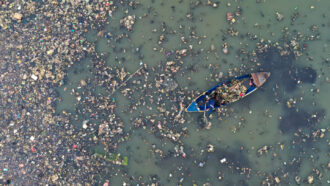 Environment
EnvironmentLet’s learn about plastic pollution
The world is cluttered with plastic waste. All that junk kills animals far and wide.
-
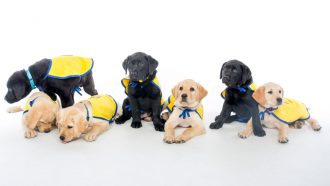 Life
LifeEven raised by people, wolves don’t tune into you like your dog
Dog puppies outpace wolf pups at engaging with humans, even with less exposure to people, supporting the idea that domestication changed dogs’ brains.
-
 Chemistry
ChemistryLots of makeup may contain potentially harmful ‘forever chemicals’
Hints of PFAS compounds have turned up in about half of tested makeup products. Waterproof mascaras and lipsticks were very likely to contain them.
-
 Climate
ClimateNew UN climate report finds no time for denial or delay
It links extreme weather around the globe to Earth’s changing climate.
-
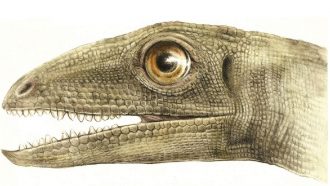 Earth
EarthNew beetle species found in fossil poop of this dino relative
Whole beetles preserved in fossilized reptilian poop suggest that ancient droppings may deserve a closer look.
By Nikk Ogasa -
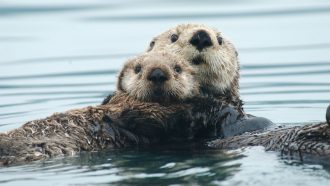 Animals
AnimalsHere’s how sea otters stay warm without blubber or a large body
For the smallest mammal in the ocean, staying warm is tough. Now, scientists have figured out how the animals’ cells rise to the challenge.
-
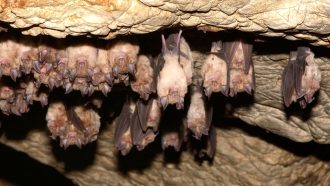 Health & Medicine
Health & MedicineOne key change may have helped the coronavirus become a global menace
One key mutation may have helped the virus behind COVID-19 better infect human cells.
-
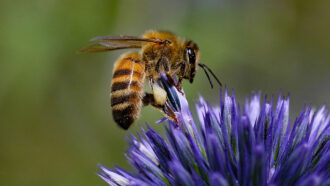 Animals
AnimalsAbdominal fuzz makes bee bodies super slippery
Scientists find that tiny hairs on a honeybee’s abdomen reduce wear and tear as a bee’s outer skeletal parts rub against each other all day long.
-
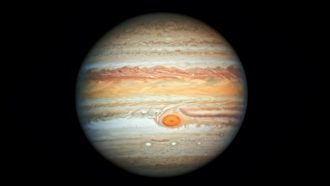 Space
SpaceBorn in deep shadows? That could explain Jupiter’s strange makeup
Dust that blocked sunlight might have caused the gas giant to form in a deep freeze, a new study suggests.
By Ken Croswell